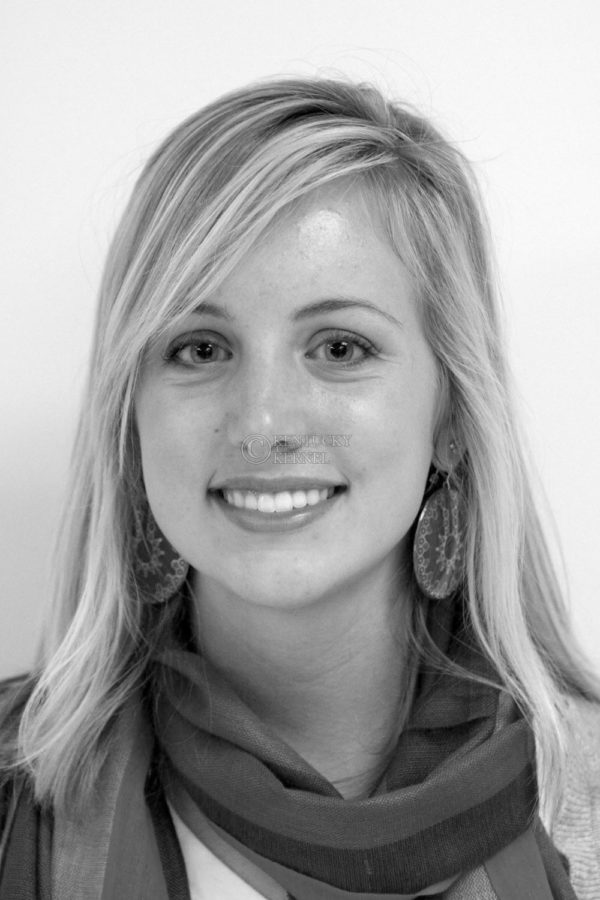Herald-Leader makes a faulty comparison, clarification necessary
October 4, 2010
Column by Cassidy Herrington. E-mail cherrington@kykernel.com.
We may live in the Big Blue Nation, but we are a part of something much more significant — the world.
The “Pale Blue Dot” is the name astronomer Carl Sagan used to describe a photograph of our planet taken from nearly four million miles away.
According to Sagan, this photo challenges the notion of self-importance and entitlement. All of humanity, past and present, exists on a speck of dust. All of human history unfolded on this dot.
The population of a diverse human species shares this dot and continues to expand as time, experience and knowledge progress.
And despite the technological advances of Internet, air travel and media, we still restrict ourselves to a limited worldview.
Our college town is limited to what we deem important. Basketball, for example, is paramount in UK’s priorities.
Last week, the “Big Blue Madness” ticket sales brought an influx of die-hard and bleed blue fans to camp outside of the box office for three days to seize an enviable spot at the anticipated sporting event.
Worlds away from this battle for tickets, refugees scrambled to collect their food rations. And yet, these two dissimilar events are not worlds away — they exist on the same “blue dot.”
Why do I bring this up?
Last week, the Lexington Herald-Leader called the campout for “Big Blue Madness” tickets a “veritable refugee camp of tents around the arena … leaving a sea of pizza boxes and coffee cups.”
What the article failed to recognize was the two “camps” are beyond comparison.
While the word “camp” conjures images of tents, refugee camps do not have them in many cases. Indescribable poverty, hygienic anarchy and horrific violence are features ascribed to refugee camps, places where thousands of people afflicted by suffering and poverty rest their heads at night.
Genocide, poor governance or environmental destruction forces masses of people from their homes to makeshift camps in countries such as Kenya, Uganda and Haiti. Depending on the crisis, the number of people living in these camps can reach hundreds of thousands. Consequently, in many cases, these massive numbers bring disease, contamination, starvation and more hostility.
So maybe the Herald-Leader was using metaphor to better illustrate the scenery, but it occurred to me, we are losing sight of the bigger picture. UK is a“Big Blue Bubble,” and one can easily become absorbed in trivialities.
I walked through the rows of tents awaiting their Big Blue Madness tickets, and not in a single instance did I stumble upon the vast poverty of a refugee camp. I saw corn hole games, grills, and port-a-potties.
In comparison, the rations meant to sustain the masses in refugee camps are usually grains and beans from foreign aid. Toilets are usually nonexistent, taking the form of pits or open fields.
Hundreds of thousands of people on our planet are starving. The refugee camp hosts human rights issues unseen in the U.S., and the events forcing populations to move are unfathomably worse than the conditions of the camps themselves.
Working with refugees in Kentucky, I’ve spoken to Somalis who witnessed the merciless killings of their family members in Kakuma, a refugee camp in Kenya. The brutality is incomprehensible.
Here’s where I see hope: if 15,400 UK fans can scramble for tickets and wait unshakably outside of Commonwealth stadium, maybe learning about the world’s people can invoke the same determination to eradicate preventable suffering. There are opportunities locally and abroad, such as Kentucky Refugee Ministries or volunteer trips overseas.
If UK fans exerted the same energy and fervor in humanitarian crises or concern for one another as in their passion for an athletic team, the world would be more inhabitable.
Carl Sagan got it right.
The “Big Blue Nation” perspective denotes entitlement and leaves the rest of the world out of the conversation. Sagan’s “Pale Blue Dot” suggests humility and encompasses the whole human experience.
Our planet is the only home we’ve ever known, and maybe the occasion to step back and observe its smallness will help us be more compassionate toward one another and the world.
































































































































































